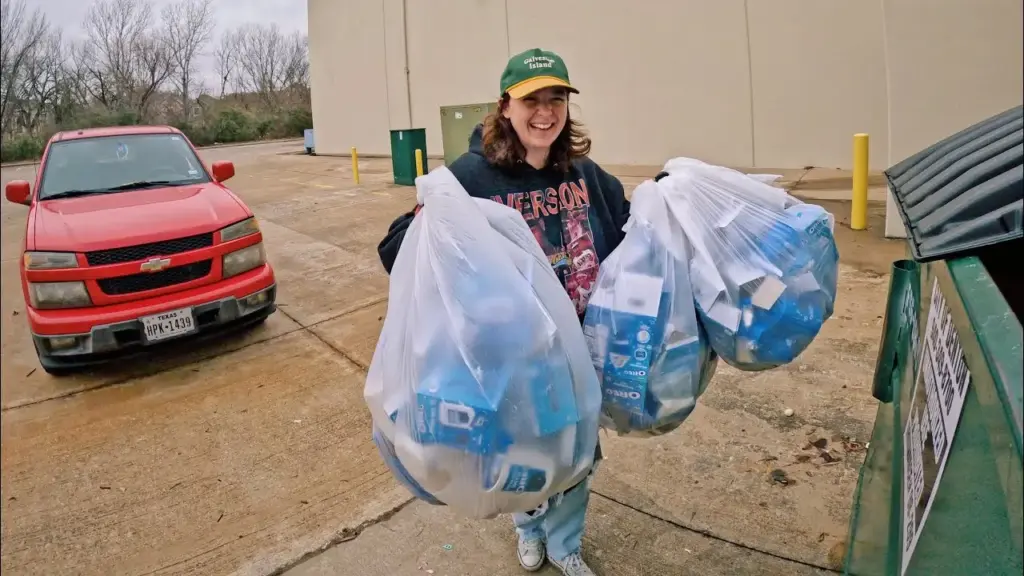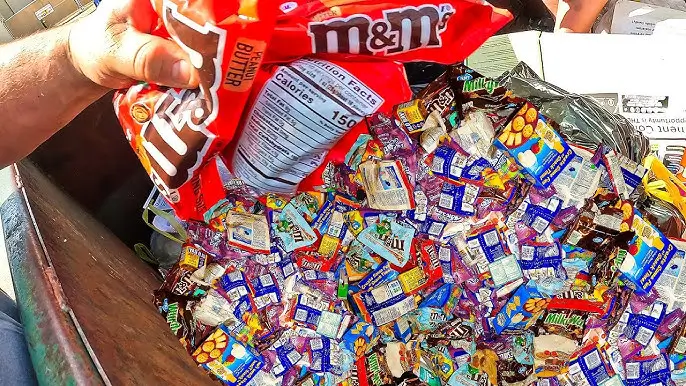A recent discovery by a dumpster diver behind a Dollar General store has sparked a larger conversation about retail waste and the ethics of food and product disposal. The diver found piles of unopened candy, snacks, and other products that appeared still safe for consumption, raising concerns about how much usable, perfectly good product is discarded by retailers.

The incident underscores the widespread issue of food waste and its environmental, economic, and social implications in the United States.
Dumpster Diver Finds Piles of Unopened Candy
| Key Fact | Detail |
|---|---|
| What Was Found | Unopened Hostess Twinkies, Nutella, Nutter Butter cookies, and more. |
| Annual U.S. Retail Waste | Over 16 billion pounds of food are discarded by retailers each year. |
| Legality of Dumpster Diving | Dumpster diving is legal in many U.S. states, but it varies by location. |
The Discovery: What Was Found and Why It Matters
A Reddit user, posting under the name u/DumpsterDiverDave, shared an intriguing find: sealed candy and snack products, including Hostess Twinkies, Nutella, and Nutter Butters, all discarded behind a Dollar General store. The items, still in their packaging and apparently undamaged, were discarded because they had either reached their expiration date or weren’t sold in time.
The discovery highlights a broader issue in the U.S. where major retailers routinely dispose of perfectly good products that could be reused, donated, or repurposed. According to the diver, they discovered stacks of unopened, unexpired products in what appeared to be a routine discard process.
While it may seem like an isolated incident, it points to the systemic problem of retail waste, where billions of pounds of food and consumer goods are thrown away each year, much of it still safe for consumption.

The Problem of Retail Waste
The Scale of Retail Waste in the U.S.
The U.S. faces a massive problem of retail waste, with more than 16 billion pounds of food discarded by supermarkets and discount stores annually. While not all of this waste is food—retailers also discard clothing, toys, and other consumer goods—food waste alone makes up a significant portion of the total.
Much of this waste occurs because items are close to or have passed their expiration dates, are deemed unsellable due to aesthetic damage (e.g., crushed packaging), or are overstocked and simply do not sell before the next inventory rotation.
This waste has serious environmental consequences. When food decomposes in landfills, it produces methane, a greenhouse gas that is 84 times more potent than carbon dioxide in the first 20 years after it is released. Reducing food waste is therefore a critical step toward addressing climate change.
Legal and Ethical Implications
Dumpster Diving and Its Legal Standing
While dumpster diving can seem like an unconventional way to retrieve discarded goods, it is legal in many U.S. states. However, it is subject to local laws. In most cases, once items are placed in a public trash bin or dumpster, they are no longer considered the property of the retailer, and people are free to take them. But trespassing laws and private property rights may still apply in certain areas.
Many dumpster divers, like the one behind this discovery, are motivated by both the thrill of the find and a desire to reduce waste. In some cases, however, they are also seeking to highlight how much usable food and products are thrown away by major retailers.
Ethical Considerations in Retail Waste
The ethical concerns surrounding retail waste are growing. Some critics argue that stores like Dollar General, which discard large quantities of new products, should have more responsible disposal practices, such as donating unsold, unopened products to food banks or other charitable organizations.
For example, the Good Samaritan Food Donation Act protects food donors from liability, making it easier for companies to donate edible but unsellable products without the risk of legal repercussions.
The public outcry against this kind of waste is especially strong when it comes to food. While there are some initiatives that encourage food donations, such as food recovery networks, these are not always adopted by all retailers.
A Global Perspective: How Other Countries Manage Retail Waste
European Efforts to Reduce Waste
In many European countries, including France and Germany, retailers are legally required to donate food that is approaching expiration rather than discarding it. France, for instance, passed a law in 2016 that forces supermarkets to donate unsellable food to charities. This has helped reduce food waste and combat hunger in the country.
U.S. Adoption of Food Donation Policies
The U.S. has made some strides in encouraging food donations through the Good Samaritan Food Donation Act and local regulations that make it easier for businesses to donate food without fear of legal repercussions. However, the practice is far from widespread, and many retailers, particularly in the discount space, often dispose of items instead of donating them.
The Role of Retailers and Consumers in Reducing Waste
Retailers’ Responsibilities
For retailers, waste reduction needs to be more than just a public relations talking point. Companies like Dollar General could be doing more to combat food and product waste by:
- Donating unsellable but edible food to local charities.
- Implementing better inventory systems to minimize overstocking.
- Educating employees on sustainable waste management practices, such as composting and recycling.

Consumer Awareness
Consumers also play a role in addressing retail waste. By being more mindful of product dates and buying products in smaller quantities, shoppers can reduce over-purchasing.
Supporting companies with clear sustainability practices and purchasing items near their expiration dates (at a discount) can help curb waste at the consumer level.
Related Links
U.S. Work Culture Shift – Companies Adopt 9-9-6 Model as Standard for Productivity
Popular Dietary Supplement Linked to Increased Risk of Heart Failure — What You Should Know
Local Communities: How the Public Is Responding to Retail Waste
Communities around the country are increasingly advocating for food recovery programs and waste diversion initiatives. Nonprofits like Feeding America and City Harvest are working with grocery stores and retailers to recover millions of pounds of food annually.
Community efforts, such as food pantries and local farms that accept discarded products, have also proven successful in reducing waste and addressing food insecurity.
The discovery of unopened food and consumer goods behind a Dollar General store highlights the ongoing issue of retail waste in the U.S. As food prices rise and food insecurity remains a pressing concern.
it’s clear that the current waste management practices at many retailers are unsustainable. Moving forward, retailers, lawmakers, and consumers must work together to find solutions—whether through waste reduction, donation, or better supply chain practices—to ensure that perfectly good food and products are used to their full potential.





